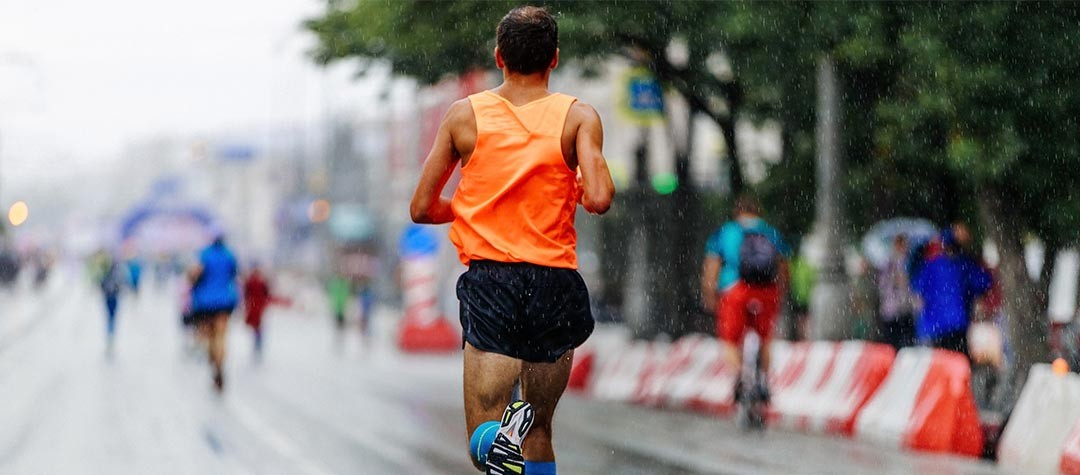Weight training may not be an obvious training technique for the runner, but some form of resistance training is a recommended for the runner wanting to make good progress.
You might look at the start line of a big city marathon and see these very slim Kenyan and Ethiopian athletes and think all they do is clock up huge distances in training and that is it. But you would be mistaken, because the chances are that many of them do some form of weight training.
Injury prevention is key
Obviously, given the times and distances they run, they are not looking to bulk up and gain weight in the gym. The purpose of weight training for runner is more for injury prevention than anything else.
Making sure the body is strong enough to withstand the number of miles you are going to put into your legs is the number one priority because you don't want to get halfway through your marathon training and break down. This is where a weights programme can really help, by strengthening the key areas used for running, such as the hamstrings, calves, and quads.
Making sure the body is strong enough to withstand the number of miles you are going to put into your legs is the number one priority...
Weight training can be extremely individual and one programme of exercises may not be the best thing for you, because you need to focus on any weaknesses you may have. The programme therefore needs to follow the athlete, and not the other way around. To enable you to know which exercises are going to work best you need to talk to a strength and conditioning coach, or have a physio tell you some exercises that you should be doing.
However having said that there are a few exercises that I feel every runner should do. For instance, I often have calf issues and this then causes problems with my achilles. As a result my weights programme will always have some exercises which focus on the calf press, calf raises, and also walking tall with weights to help me maintain the strength in my calves. This is vital for me as I don’t want my calves to break down when I need to be running 100+ miles per week.
Here are a few exercises that every runner should incorporate into their training;
1. Squats
This simple yet technical exercise is great for maintaining strength in the upper legs and glutes. Done correctly they will also strengthen the back and maintain the correct posture, preventing any collapse (leaning forward) once you get tired when you’re running.
Starting by doing squats with just your bodyweight is a good idea, to help get used to the movements and using a mirror can also really help identify any mistakes you’re making. The most common error would be bending your back too much and also not breaking parallel with the ground on the squat.
2. Core
Having a core routine will really help keep everything tight, in-line and strong. We aren’t just talking about having a six pack here, but making sure your abductors, hips, and lower back are strong. Having any weakness in these areas is likely to cause an injury somewhere else in the body.
A good example is if you have a weak glute. In that instance the tendency is to overwork the other side of your body to balance you out, but that can often subsequently lead to knee pain in that leg. Often the injury isn't where the problem lies, but something that’s been aggravated by an issue further up the chain.
3. Jumps
Technically this isn’t weight training but more plyometrics, however this exercise will help maintain the explosive power you need to run fast. Running marathons over the years will mean that you’ll get less explosive and the result is a loss of speed. To counter this, it is important to maintain these exercises (and also faster running workouts) to get those fast twitch muscle fibres firing.
It would be silly for me to write a list of exercises and say these are the ones you MUST do to be a better runner. If you know you have injury problems then focus on those areas first. Many physios offer an ‘MOT’ service where they can identify any problem areas (weaknesses) and show you some exercises to correct them. There are a lot of weight training exercises you can do which don't need any special equipment, especially when you are just starting out, because many of the programmes will just be using your own body weight as resistance.
Good luck with the training, and always remember just because you have a six pack it doesn't necessarily mean you are strong!















